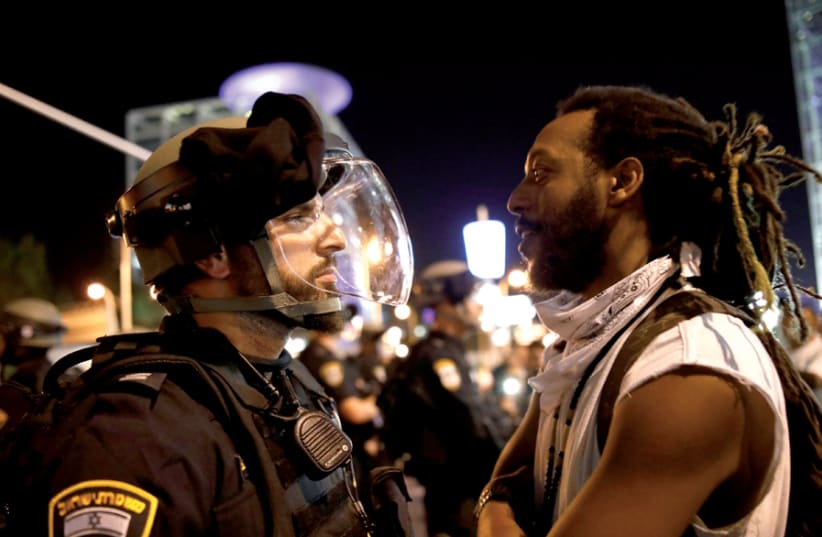The policeman who is on trial for the negligent homicide of Solomon Tekah has been restored to full-time operational status, shocking the Ethiopian community and the Police Investigations Department, which probed his conduct and filed the indictment against him.
The PID said that it was not consulted and was completely blindsided by the decision. The trial in Haifa Magistrate’s Court began in February last year.
Tekah was killed by the policeman, whose name remains under gag order, in disputed circumstances in June 2019.
The policeman was placed on compulsory leave that July.
In an unusual opening statement at the trial, Judge Zaid Falah said, “Violence, demonstrations and media will not influence the court – only admissible evidence. I will not hesitate to acquit or to convict. An acquittal will not place any stain on the deceased or his community. A conviction will not place any stain on the police.”
Recent witnesses at the trial have favored the defense, providing evidence that the policeman genuinely felt in danger when he fired on Tekah.
Former state attorney Shai Nitzan had considered a murder charge early on, then considered closing the case, and finally settled on negligent homicide because the policeman may have fired negligently in the shooting that led to Tekah’s death.
Tekah’s killing shook the country and led to nationwide protests by the Ethiopian community, which accused police of racism.
New allegations were constantly emerging, including one that Tekah and some of his friends were chasing the policeman when he wildly fired at them without looking.
Other narratives say that Tekah and his friends were pursuing the policeman and that they hit him twice with rocks, but that they still kept their distance, were not advancing toward the policeman at the moment that he fired, and did not present any danger that warranted more than a shot fired in the air, if that.
The appropriate charge in this case has been complicated by the possibility that he was pursued and rocks were thrown at him, which would undermine a more serious murder or manslaughter charge.
In July 2019, the Police Investigations Department (PID) sent a letter to the parents of Tekah defending the findings of both the police ballistics department and of the state’s forensics institute (independent from the police) that the bullet, which the policeman fired and which killed Tekah, was a ricochet.
This issue is also of crucial importance, because if the policeman fired at the ground and not directly at Tekah, then he could not be charged with more than involuntary manslaughter, as was recommended by the PID.
Tekah’s parents have condemned the lenient charge of negligent homicide as a whitewash. The policeman, they say, acted with racist assumptions in a situation where no obvious crime was being committed, certainly not one requiring any use of force.
A police spokesperson had not responded to a request for clarification by press time.
